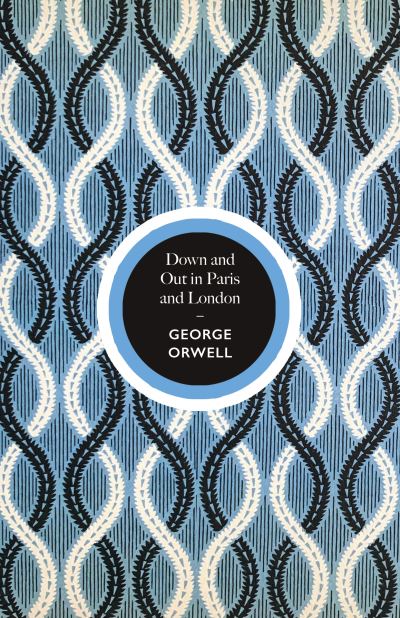Down and Out in Paris and London Synopsis
'Orwell was the great moral force of his age' Spectator
You can live on a shilling a day in Paris if you know how. But it is a complicated business.
When he was a struggling writer in his twenties, George Orwell lived as a down-and-out among the poorest members of society. In this early memoir, he recounts shocking experiences working as a penniless dishwasher in Paris, pawning clothes to buy a day's worth of bread and wine, sleeping in bug-infested bunks, trading survival skills and cigarette butts with fellow tramps, and trudging between London's workhouse spikes for a few hours' sleep and tea-and-two-slices.
With sensitivity and compassion, Orwell exposed the hardships of poverty and gave readers an unprecedented look at life lived on the fringes of society. His vivid account is an enduring call to support the world's most vulnerable people and exemplifies his belief that 'The greatest of evils and the worst of crimes is poverty.'
The Authoritative Text. With a new introduction by Kerry Hudson.
*The jacket of this stunning hardback edition features period artwork by Elizabeth Friedlander, one of Europe's pre-eminent 20th-century graphic designers. Look out for complementjary editions of Orwell's essential works Animal Farm and Nineteen Eighty-Four.*
About This Edition
About George Orwell
Eric Arthur Blair (George Orwell) was born in 1903 in India, where his father worked for the Civil Service. The family moved to England in 1907 and in 1917 Orwell entered Eton, where he contributed regularly to the various college magazines. From 1922 to 1927 he served with the Indian Imperial Police in Burma, an experience that inspired his first novel, Burmese Days (1934). Several years of poverty followed. He lived in Paris for two years before returning to England, where he worked successively as a private tutor, schoolteacher and bookshop assistant, and contributed reviews and articles to a number of periodicals. Down and Out in Paris and London was published in 1933. In 1936 he was commissioned by Victor Gollancz to visit areas of mass unemployment in Lancashire and Yorkshire, and The Road to Wigan Pier (1937) is a powerful description of the poverty he saw there. At the end of 1936 Orwell went to Spain to fight for the Republicans and was wounded. Homage to Catalonia is his account of the civil war. He was admitted to a sanatorium in 1938 and from then on was never fully fit. He spent six months in Morocco and there wrote Coming Up for Air. During the Second World War he served in the Home Guard and worked for the BBC Eastern Service from 1941 to 1943. As literary editor of the Tribune he contributed a regular page of political and literary commentary, and he also wrote for the Observer and later for the Manchester Evening News. His unique political allegory, Animal Farm was published in 1945, and it was this novel, together with Nineteen Eighty-Four (1949), which brought him world-wide fame.
George Orwell died in London in January 1950. A few days before, Desmond MacCarthy had sent him a message of greeting in which he wrote: ‘You have made an indelible mark on English literature . . . you are among the few memorable writers of your generation.’
More About George Orwell
